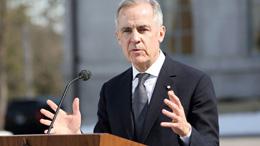Small Businesses Urge Swift Action from Carney

By Mata Press Service
As Prime Minister Mark Carney settles into office and Parliament prepares to reconvene, Canada’s small business community is sounding the alarm over a deteriorating economic climate and escalating trade tensions.
The Canadian Federation of Independent Business (CFIB) is calling on the new government to act swiftly on promises made during the campaign and implement targeted relief for small- and medium-sized enterprises (SMEs) struggling to navigate the dual threat of domestic economic stagnation and an intensifying tariff battle with the United States and China.
“It was good to hear both Prime Minister Carney and Opposition Leader Poilievre pledging to work together to address the threat of U.S. tariffs in a minority Parliament,” said CFIB President Dan Kelly. “Now that we have a degree of political clarity, government needs to turn its attention to reducing taxes, cutting red tape and providing much-needed economic certainty.”
The call comes as CFIB’s latest Main Street Quarterly report, developed in partnership with AppEco, paints a grim picture of the Canadian economy heading into the second quarter of 2025.
After modest growth of 0.8% in Q1, the report forecasts a significant economic contraction in Q2. Inflation is also on the rise, with Consumer Price Index (CPI) inflation climbing to 2.4% in Q1 and projected to hit 2.7% in Q2.
One of the most troubling signals is the collapse in private investment, which dropped 13.9% in the first quarter and is projected to plunge by a further 19.1% in Q2. CFIB attributes much of this retrenchment to ongoing uncertainty around trade policy and rising costs.
“Small businesses are pausing their capital expenditures because it’s nearly impossible for owners to plan when they’re not sure if their business will still be viable six months from now,” said Simon Gaudreault, CFIB’s chief economist and vice-president of research.
“The raging trade war will likely drive up the cost of doing business and lead to inflation. Bold policy changes are needed.”
CFIB has outlined a detailed list of immediate policy priorities for the federal government:
- Quickly return money collected through Canadian counter-tariffs to impacted small businesses.
- Eliminate the federal carbon tax, deliver the remaining $500 million in carbon rebates for 2024-25, and ensure that rebates are tax-free.
- Enact the promised increase to the Lifetime Capital Gains Exemption to $1.25 million and implement the Canadian Entrepreneurs’ Incentive.
- Lower the federal small business tax rate from 9% to 0% for the foreseeable future.
- Advance mutual recognition of regulations with the provinces to eliminate internal trade barriers.
- Make immediate expensing available to all businesses in all sectors.
- Reduce Employment Insurance premiums for smaller employers to match employee rates.
Particularly urgent, according to CFIB Executive Vice-President Corinne Pohlmann, is for the government to follow through on campaign commitments to drop the proposed increase to the capital gains inclusion rate and remove consumer carbon taxes.
“Small businesses are looking to the new government to follow through on its promises,” said Pohlmann. “They’re under tremendous pressure from rising input costs, weak demand, and supply chain disruptions. The federal government must move quickly to stabilize the situation.”
Sectoral data from the CFIB report further illustrate the strain. Manufacturing and wholesale firms—highly exposed to international trade—are suffering most from demand weakness. Meanwhile, sectors like agriculture, hospitality, and the arts are struggling to absorb costs without passing them on to consumers. About a third of wholesale businesses have already increased prices, and two-thirds of hospitality and construction firms plan to do so once supplier costs stabilize.
Job vacancy rates, another pressure point, held steady at 2.8% in Q1, with nearly 400,000 private sector positions remaining unfilled. Exporters, the report noted, are the least able to pass on new tariff-related costs, further limiting their competitiveness and growth.
With confidence among small business owners hovering near historic lows, CFIB warns that inaction could deepen the coming downturn and permanently damage Canada’s entrepreneurial ecosystem.
“Governments at all levels urgently need to create a more balanced economic environment,” Gaudreault said. “Without meaningful relief, Canada risks losing the very businesses that drive our communities and generate the majority of new private-sector jobs.”
As Parliament prepares to resume, small business leaders across the country will be watching closely to see whether Carney’s government delivers on its pledges—or whether promises made on the campaign trail will get lost amid the growing economic storm.






